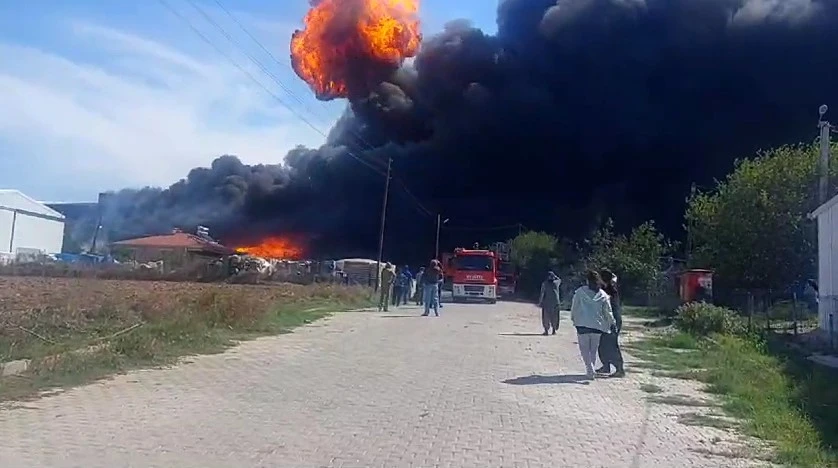Fire-related air pollution responsible for 1.5 million deaths, study says
 Fire breaks out at chemical paint factory in Tekirdag, Türkiye. (IHA Photo)
Fire breaks out at chemical paint factory in Tekirdag, Türkiye. (IHA Photo)
Air pollution caused by landscape fires is responsible for over 1.5 million deaths each year, the majority of which occur in developing nations, a new study published Thursday in The Lancet reveals. The findings underscore the deadly consequences of fire-related air pollution, with the death toll expected to rise as climate change leads to more frequent and severe wildfires.
The study, conducted by an international team of researchers, examined data on landscape fires, which include both wildfires and planned agricultural burns. According to the researchers, between 2000 and 2019, approximately 450,000 deaths annually were linked to heart disease caused by fire-related air pollution. Another 220,000 deaths were attributed to respiratory illnesses due to the smoke and particulate matter released into the atmosphere.
Overall, the study found that 1.53 million deaths worldwide were linked to air pollution from landscape fires. The vast majority of these deaths—more than 90 percent—occurred in low- and middle-income countries. Sub-Saharan Africa alone accounted for nearly 40 percent of the deaths, with countries such as China, the Democratic Republic of Congo, India, Indonesia, and Nigeria bearing the heaviest tolls.
In India, a record amount of illegal field burning in northern regions has contributed to severe smog in New Delhi, raising alarms about the health impacts of uncontrolled agricultural fires.
The study’s authors called for “urgent action” to mitigate the public health crisis driven by fire-related air pollution. They also emphasized the inequities between rich and poor nations, noting that climate change disproportionately affects those who have contributed the least to global warming—a phenomenon often described as “climate injustice.”
While residents of wealthier nations may use air purifiers, masks, or relocate to avoid smoke, such options are not available to people in poorer countries, the researchers pointed out. As a result, they called for increased financial and technological support for the hardest-hit nations.
The findings come just days after the conclusion of UN climate talks, where delegates agreed to increase climate funding. However, many developing nations have criticized the funding as insufficient to address the impacts of climate change, which continue to exacerbate extreme weather events such as hurricanes, droughts, and floods. The study also follows a national emergency declaration by Ecuador, where forest fires have ravaged more than 10,000 hectares in the southern part of the country.
With 2024 projected to be the hottest year on record, the study’s conclusions are a stark reminder of the growing threat posed by landscape fires and their far-reaching effects on global health and climate stability.



